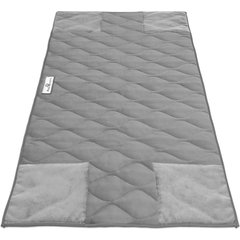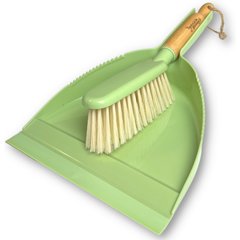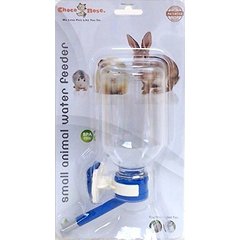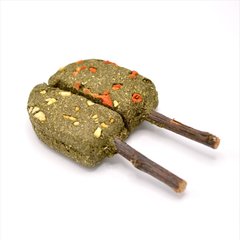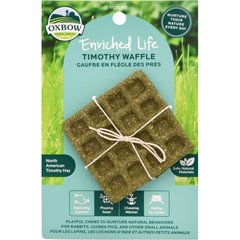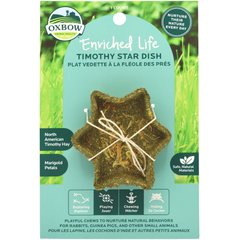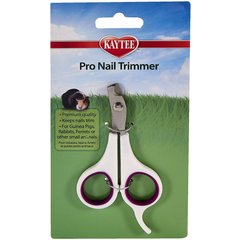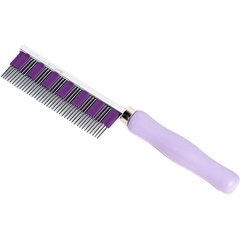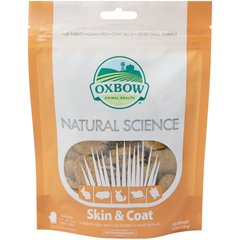Are Guinea Pigs Good Class Pets?
EVAfotografie/iStock / Getty Images Plus via Getty Images
Guinea pigs are known as a popular starter pet for children.
Giving guinea pigs the daily care they need can help to teach children responsibility and how to care for a furry companion. Since guinea pigs are also very gentle and sociable creatures, they can be a good option as a class pet.
What Is a Guinea Pig?
Guinea pigs, also known as Cavia porcellus, are part of the rodent family and were originally found in South America before being domesticated.
Guinea pigs can live for about five to eight years as a pet and some have even been reported to live up to 14 years.
Are Guinea Pigs Social Animals?
Guinea pigs are social animals, so it’s typically recommended they have a cage mate.
To avoid unwanted mating, it’s best to only house together guinea pigs of the same sex or those that have been spayed or neutered.
Guinea pigs are usually docile, but if one is being aggressive toward the other, they may need to be separated and placed in separate enclosures.
Guinea pigs can also be nervous, so it’s important to socialize them to become used to human contact.
Are Guinea Pigs Good With Kids?
Guinea pigs can be great pets for older children!
Responsible children ages 10 and up are okay to handle most tasks associated with guinea pig care.
However, children under the age of 10 should not take care of or handle guinea pigs without adult supervision. Guinea pigs are fragile and can become frightened, so they are not pets for young children and toddlers.
Children should be at least 5 years old and should always be watched by an adult when interacting with a guinea pig. The adult can teach them how to hold them and safely play with them.
Guinea pigs are very friendly and can make wonderful pets for children, some even functioning as emotional support animals.
Essentials for Your Classroom Guinea Pig
To give your guinea pig a happy and healthy life, you will need some essentials.
A good diet, a spacious and clean habitat, and constant enrichment are important parts of caring for your guinea pig.
Guinea pigs need daily love, attention, and care, including during weekends and school breaks. It’s very important to have a strict plan for their care when students are not in the building.
Enclosure
Guinea pigs need a clean, well-ventilated cage with plenty of hideaways for comfort.
Wire-based cages can injure the feet, resulting in infection and inflammation (bumblefoot). A better alternative would be solid flooring—like plastic—with lots of soft bedding on top.
A non-toxic, spongy mat (such as a children’s playmat) can also be used below a guinea pig-friendly fleece at the bottom of the cage.
This will provide comfort for your piggie’s feet and allow for easy cage cleaning.
Recommended Products
Recommended Products
Cages should be set up away from drafts but in a place that is easily reached for cleaning.
It may be easier for children to reach into a cage that’s on ground level rather than on a tabletop.
Controlled Temperature
Guinea pigs can be sensitive to being either too hot or too cold; that’s because they lack sweat glands and have a high metabolism.
Because of this, it’s hard for them to regulate their body temperature when the environmental temperature fluctuates too much.
Guinea pigs should be kept in environments between 65–75 F to avoid hypothermia (too cold) or hyperthermia (too hot), both of which can be fatal.
Hairless guinea pigs (also known as skinny pigs) need a warmer environment. Skinny pigs should be kept in an environment that’s between 70–77 F, and may like having a fleece to burrow in.
Pellets and Hay
Guinea pigs should be fed a pelleted diet that has been made for their life stage.
Your guinea pig should always have access to clean, fresh hay to promote a healthy digestive system.
From birth to about 6 to 7 months of age, guinea pigs should have unlimited alfalfa hay to help with growth.
Alfalfa hay is high in calcium. Because of this, decrease the amount you’re giving your piggie when between 6 months to 1 year of age.
After the first year of your guinea pig’s life, stop giving them alfalfa hay and start to introduce timothy, oat, and orchard hay.
Guinea pigs can develop bladder stones from excess calcium so it’s important to discontinue alfalfa hay. Limit calcium-rich vegetables as well.
Treats and Supplements
You can give your guinea pig a variety of treats, but it’s important to account for treats as part of their daily food intake to help prevent obesity.
Guinea pigs can be prone to obesity if fed too many treats and pellets.
Obesity in guinea pigs can cause health issues like:
-
Arthritis
-
Diabetes
-
Heart disease
-
Bladder problems
Fruits are a healthy snack choice in moderation for guinea pigs but too much fruit can cause health problems due to high sugar content.
Vitamin C deficiency is common in guinea pigs, so your vet may recommend that you give your guinea pig a vitamin supplement.
Recommended Products
Fruits and Veggies
Fresh vegetables are an essential part of your guinea pig's diet. Leafy greens are high in nutritional value and can be fed to your guinea pig daily.
Please introduce fruits and veggies slowly. Too many veggies can cause diarrhea and stomach upset.
Daily veggie options include:
-
Romaine lettuce
-
Tomatoes
-
Green leaf lettuce
-
Carrots
-
Bell peppers
-
Cucumber
Vegetables such as iceberg lettuce do not have many nutrients in them and should be avoided.
Some vegetables are very high in calcium. They should only be given occasionally or in moderation to prevent bladder stone formation.
Occasional veggie options for guinea pigs are:
-
Kale
-
Arugula
-
Cilantro
-
Bok choy
-
Dandelion
-
Endive
-
Turnip greens
Fruits can be given to your guinea pig once or twice a week in small amounts as a treat. Safe fruits for your guinea pigs include:
-
Blueberries
-
Raspberries
-
Bananas
-
Kiwi
-
Apples without seeds
-
Cantaloupe
Water
Guinea pigs should always have unlimited access to clean water.
Guinea pigs may knock over bowls, so a hanging water bottle is typically recommended. Bits of food can be caught in the water bottles during drinking, and this can cause bacterial growth over time.
Clean the bottle every morning before filling it to keep your guinea pig's water clean.
Recommended Products
Toys and Enrichment
Toys are important to your guinea pig's daily life—and not just so they can have fun.
Many toys will help guinea pigs keep their continuously growing teeth trim, and playing with them is a great form of exercise. Enrichment will keep your guinea pig’s mind working and can help avoid unwanted behaviors.
Guinea pigs should not be placed in rolling balls or hamster wheels because their spine cannot bend like a hamster’s spine. Rolling balls and hamster wheels can cause injury, overheating, and foot trauma in guinea pigs.
Recommended Products
Regular Exotic Veterinary Care
Like a dog or cat, your guinea pig will need regular checkups and care from their veterinarian, ideally an exotic veterinary specialist or a general practitioner with a robust exotic small animal background.
Guinea pigs should have a yearly exam performed by an exotic veterinarian to make sure that they are healthy and to find possible illnesses sooner.
Guinea pigs need regular grooming such as nail trims and coat brushing.
They do not need to be bathed unless they get soiled, and you can spot-clean them or provide any butt baths as needed.
Due to guinea pigs’ sensitivity to temperature changes, frequent bathing should only be done under the recommendations of your veterinarian.
Nail trims should be done every two to four weeks or as needed. You can bring your guinea pig to the vet for regular nail trims as well.
Recommended Products
Keeping your guinea pig's fur brushed and clean will help avoid skin infections or skin problems.
Skinny pigs can develop dry skin; ask your veterinarian about ways to increase moisture.
Skin supplements may be a great option for your pig. Aloe vera-based creams that are free from chemicals can also be helpful.
Speak with your vet before giving your piggie supplements or creams.
Recommended Products
Frequent Lap Time and Proper Handling
Lap time is an important part of socializing your guinea pig and should happen daily.
Your guinea pig’s temperament will determine how long they should be handled.
Start with five to 10 minutes at a time and work up to 20 minutes. If your guinea pig becomes stressed or restless, return them to their enclosure to decompress.
Proper handling of your guinea pig is important for both their safety and yours. If your guinea pig was accidentally dropped, they could sustain broken bones or damaged organs, both of which can be life-threatening.
Children should always be closely watched by an adult when handling a guinea pig or another pet.
Two hands should be used when holding a guinea pig to keep them secure, with one hand under the chest and the other supporting their back legs and rear.
Wrapping your guinea pig in a small blanket can make it easier for children to handle and may help your guinea pig feel more secure.
Supervised time outside of the cage is also an important part of a guinea pig’s routine.
Make sure to remove any toxic plants, electrical cords, and any obstacle or object that could cause your pig to get stuck or injured.
Large playpens with yoga mats or blankets are a great way to keep them safe while still providing them with stimulation outside of their primary enclosure.
You can place snuffle mats, tunnels, or hanging chews inside the pen as well.
What To Know Before Getting a Guinea Pig for Your Classroom
Guinea pigs are fragile and can easily be scared, so they may not be suited for a classroom with younger children in it.
Guinea pigs need daily love, attention, and care, including during weekends and school breaks. It’s very important to have a strict plan for their care when students are not in the building.
Caring for the guinea pig daily can help teach children responsibility and be considered a reward in the classroom.
Guinea pigs can also function as emotional support animals for both the children and teacher’s mental health.
They can provide companionship and affection, decrease stress, and help foster a sense of safety in the classroom for all.
Guinea pigs that are well cared for can even help with children having anxiety/panic attacks or help them if they have trouble focusing.
References
Guinea Pig: Diet, Life Span, & Facts. Encyclopædia Britannica. Updated Oct. 3, 2024. https://www.britannica.com/animal/guinea-pig
Guinea Pig. Smithsonian’s National Zoo and Conservation Biology Institute. Published Dec. 27, 2019. https://nationalzoo.si.edu/animals/guinea-pig

